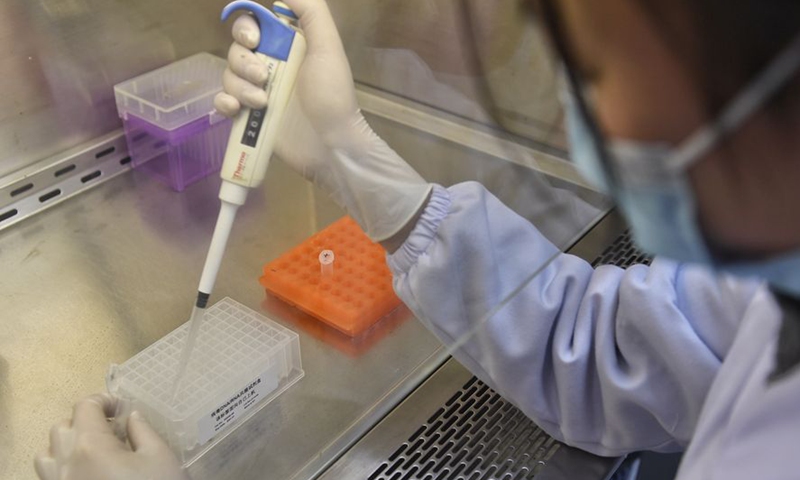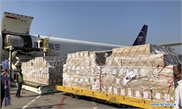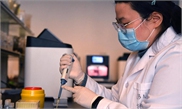
A staff member checks the quality of nucleic acid extraction kits at Chengdu Bio-Base Technologies Co., Ltd. in Chengdu, southwest China's Sichuan. File Photo: Xinhua
The COVID-19 test kits produced by major Chinese manufacturers still have high accuracy in detecting mutant strains, several producers said, in response to rising public concerns that whether the mutant strains such as Delta will affect reliability.
In the fresh outbreak in Putian, East China's Fujian Province, nine test results of a patient were negative during his 21-day quarantine from Singapore.
Previously, there have been multiple similar cases across China. Earlier this month, a positive case in South China’s Guangzhou Yuexiu district had seven nucleic acid tests that were negative. During the Zhengzhou epidemic, a confirmed case had previously returned negative results for the first seven nucleic acid tests.
All of the above cases were infected with the Delta mutant strain.
Most of the test kits manufacturers are based on the specific primers designed for the highly conserved gene segment of the novel coronavirus, which avoids the high-frequency mutation region. In general, the universality and fault tolerance of primers in nucleic acid detection, and the use of multiple primers greatly reduce the possibility of missed detection due to virus mutations, KingMed Diagnostics said, according to media reports.
Daan Gene, in response to investor questions in early August, also said that after verification and evaluation by Chinese Center for Disease Control and Prevention (China’s CDC), the company’s “coronavirus 2019-nCoV nucleic acid detection kit (fluorescent PCR method)” can detect a variety of novel coronavirus variants including Delta (B.1.617.2).
In a statement sent to Global Times, Chinese genomics firm BGI said it has developed testing kits that could differentiate variants, including Delta, Beta and Alpha, in two hours. BGI said that the accuracy rate of type judgment conducted by its kits series for mutant strains is 100 percent.
The firm also said that its mutant strain identification kit can accurately detect the specific types of mutant strains.
Across the country, the Clinical Laboratory Center of the National Health Commission has also recently carried out an inter-laboratory quality evaluation of nucleic acid testing for the Delta variant of the novel coronavirus in the country. The results announced by several firms including KingMed show that the novel coronavirus detection kits produced by them have successfully passed the quality evaluation, and the correct rate of random inspections is 100 percent.
A veteran medical expert who asked to remain anonymous told the Global Times that in addition to the rare "extra-long incubation period" situation, "false negative" test results may be the result of operational errors such as sampling and testing.
The "false negative" in the nucleic acid test may be due to the fact that it was not collected at the time of sampling. For example, when the throat swab was collected, the collection depth or contact time was not enough, resulting in the collected cells may contain less virus. Tang Meifang, Technical Director of BGI Gene Delivery Center, told the Global Times on Tuesday.
Tested samples are of the RNA of the coronavirus, and the RNA is unstable and easily degraded, improper sample transportation and sample storage conditions, such as too high temperature, may degrade the RNA, resulting in "false negatives," Tang said.



